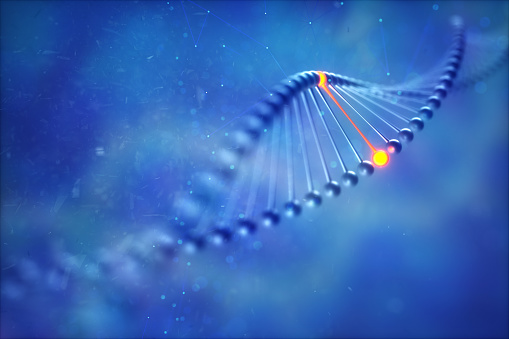
In her book, Post Traumatic Slave Syndrome, Dr. Joy DeGruy defines trauma as an injury caused by an outside, usually violent force, event, or experience. This injury can be spiritual, emotional, psychological, or physical. Dr. DeGruy, along with other research scholars, historians, and scientists, helps us to understand how the trauma of slavery is so severe that it is being passed along through our DNA to each new generation of African Americans. Researchers in the field of epigenetics–the study of biological mechanisms that can switch genes on and off, to greater or lesser extent– do support the findings that trauma is, in fact, genetically passed on.
“Trauma can leave a chemical mark on a person’s genes, which can then be passed down to future generations. This mark doesn’t cause a genetic mutation, but it does alter the mechanism by which the gene is expressed. This alteration is not genetic, but epigenetic.”
www.psycom.net

Our educational systems tend not to prioritize the hard work that is required to meaningfully address the web of compound and complex traumas that are a daily part of African American students’ life. Ancestral trauma has only recently begun to be intentionally understood and accepted as a reality. A few resources help educators understand how to address race-induced trauma in the classroom; however, none seem to recognize ancestral trauma‘s residual effects on African Americans in general and African American students in particular. The few resources that do address unique traumas borne by African Americans, begin with the Jim Crow era. The much earlier genetic damage inflicted by the evils of the European slave trade resides within the bodies of each succeeding African American generation.
We can begin by educating ourselves to the reality of epigenetics. - We can become trauma-informed by following the research.
- We can then become trauma sensitive teachers intentionally imbedding into our professional practice, authentic, nurturing relationship building with African American students.

12 responses to “Sometimes the storm is ancestral trauma…”
I want to to thank you for this great read!! I absolutely enjoyed every little bit of it. I have got you bookmarked to look at new things you postÖ
Thank you for your kind words of encouragement.
This is the perfect website for anyone who wants to understand this topic. You know a whole lot its almost tough to argue with you (not that I actually would want toÖHaHa). You definitely put a fresh spin on a topic which has been discussed for years. Excellent stuff, just great!
Thank you. There is so much more to address on this subject.
I have to thank you for the efforts you have put in writing this website. I am hoping to see the same high-grade content from you in the future as well. In truth, your creative writing abilities has motivated me to get my own, personal blog now 😉
Thank you. Please do go ahead and write your blog. I have taught for forty-eight years and I needed a platform to share my experiences.
An interesting discussion is worth comment. I do believe that you need to write more about this topic, it might not be a taboo subject but typically people do not speak about such subjects. To the next! Cheers!!
Thank you for your kind affirmation. I am encouraged to continue.
Nice post. I learn something new and challenging on sites I stumbleupon everyday. Its always useful to read content from other writers and use a little something from other websites.
Thank you.
Wonderfully explained. Need more takes from you on this topic.
Thank you. Serious research in this area is fairly recent, but so affirming and helpful.